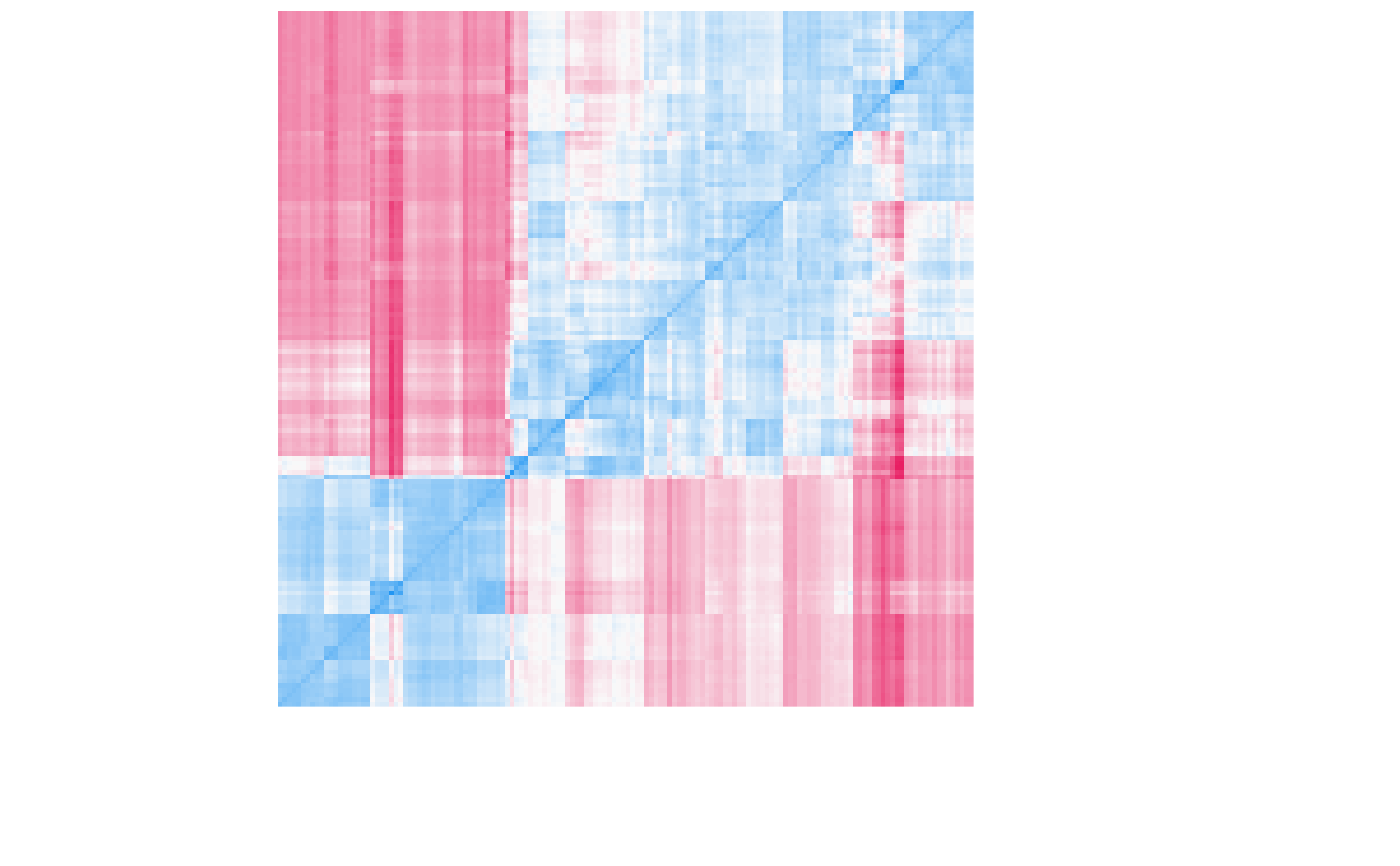
Check suitability of data for clustering
Source:R/check_clusterstructure.R
check_clusterstructure.RdThis checks whether the data is appropriate for clustering using the Hopkins'
H statistic of given data. If the value of Hopkins statistic is close to 0
(below 0.5), then we can reject the null hypothesis and conclude that the
dataset is significantly clusterable. A value for H lower than 0.25 indicates
a clustering tendency at the 90% confidence level. The visual assessment of
cluster tendency (VAT) approach (Bezdek and Hathaway, 2002) consists in
investigating the heatmap of the ordered dissimilarity matrix. Following
this, one can potentially detect the clustering tendency by counting the
number of square shaped blocks along the diagonal.
Arguments
- x
A data frame.
- standardize
Standardize the data frame before clustering (default).
- distance
Distance method used. Other methods than "euclidean" (default) are exploratory in the context of clustering tendency. See
stats::dist()for list of available methods.- ...
Arguments passed to or from other methods.
References
Lawson, R. G., & Jurs, P. C. (1990). New index for clustering tendency and its application to chemical problems. Journal of chemical information and computer sciences, 30(1), 36-41.
Bezdek, J. C., & Hathaway, R. J. (2002, May). VAT: A tool for visual assessment of (cluster) tendency. In Proceedings of the 2002 International Joint Conference on Neural Networks. IJCNN02 (3), 2225-2230. IEEE.
Examples
# \donttest{
library(performance)
check_clusterstructure(iris[, 1:4])
#> # Clustering tendency
#>
#> The dataset is suitable for clustering (Hopkins' H = 0.19).
#>
plot(check_clusterstructure(iris[, 1:4]))
 # }
# }